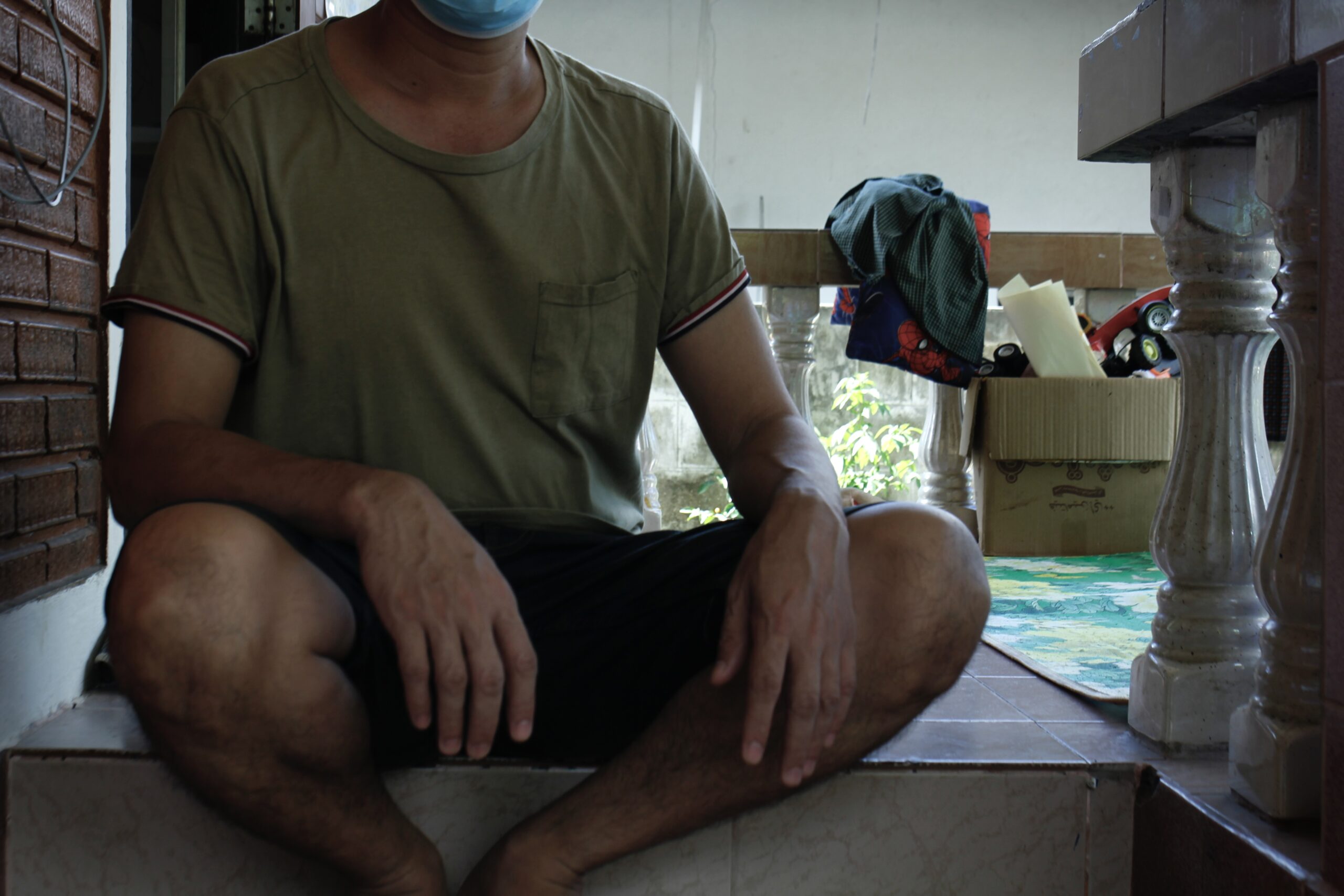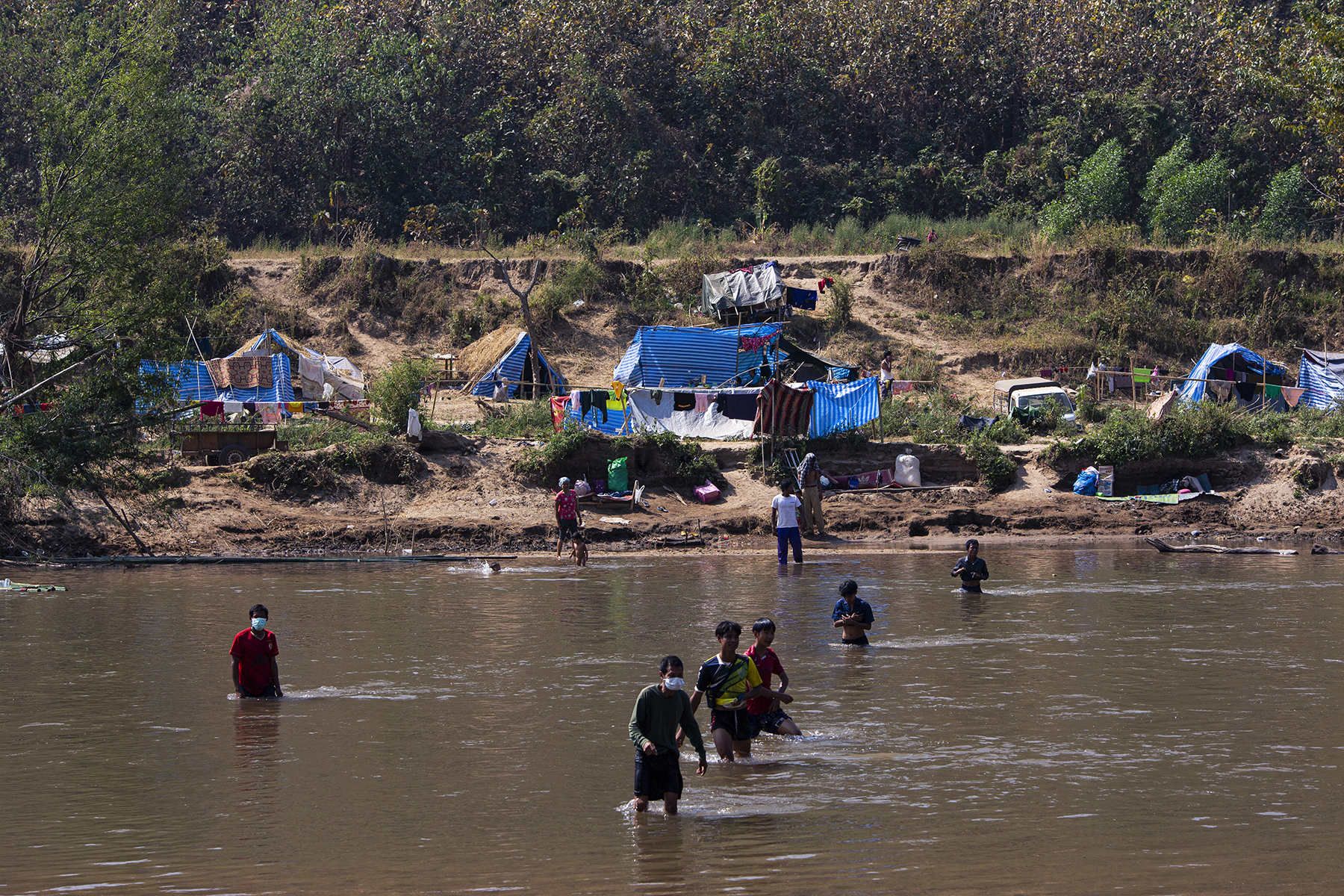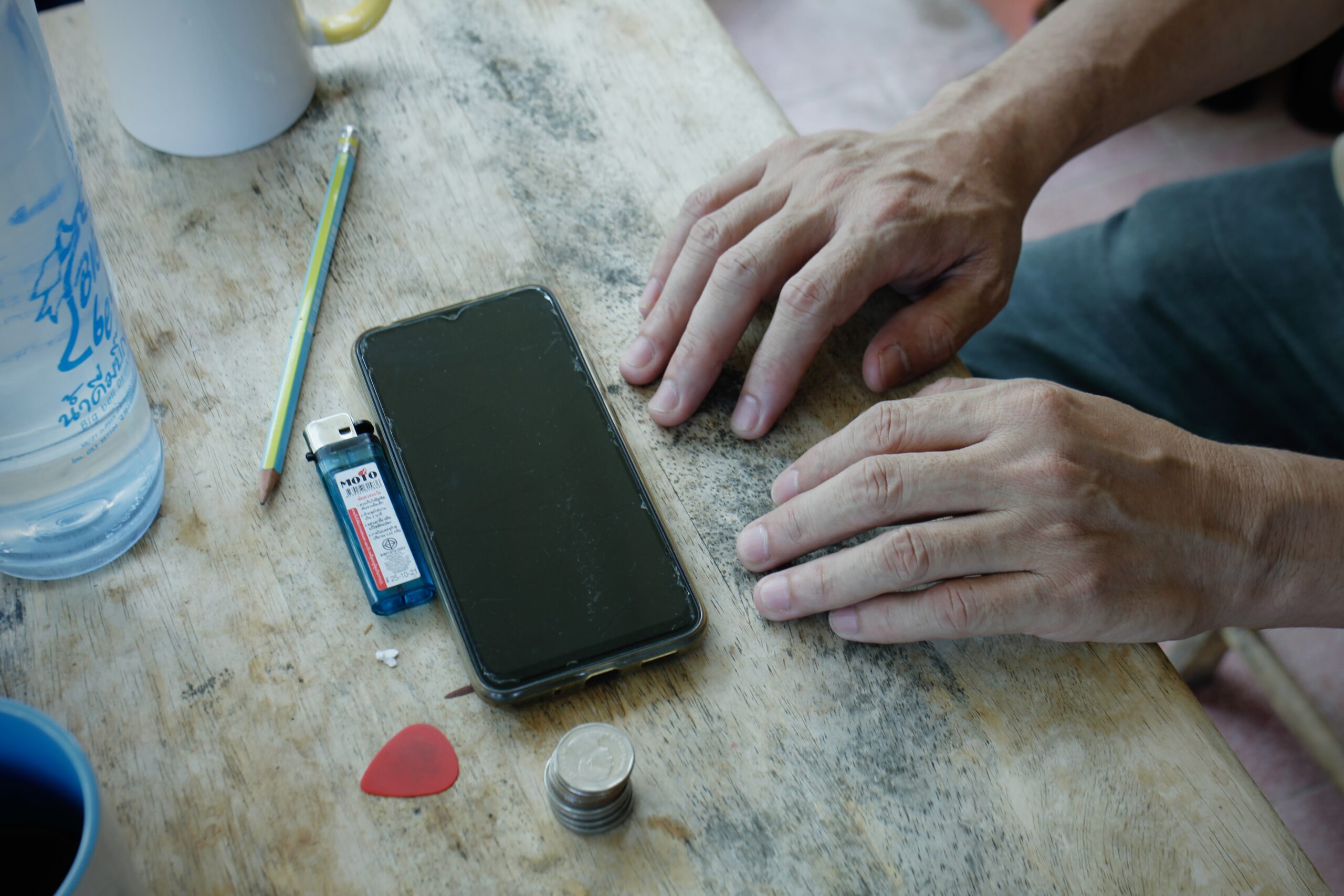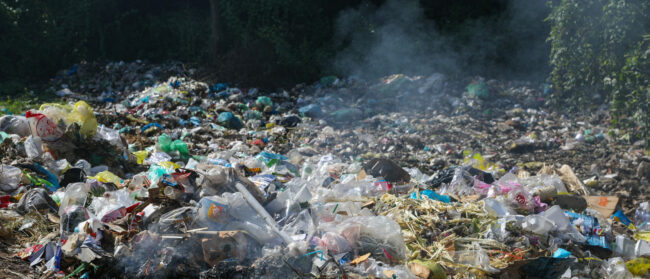Than Than Aye* reached for her daughter’s hand as she stood at the entrance of her small house. As a Myanmar anti-coup dissident, she spends most of her time with her two small children reminiscing about home across the border.
Tucked away at an undisclosed location in northern Thailand, where she fled with her family, chickens were scrambling and an open fire burned just steps away from the bamboo platform where she stood.
“Living here is different from living in my own country, because we can’t live freely,” Than Than Aye said, moments before taking her 8-year-old daughter into her arms. “Because … we came here illegally. This makes us feel afraid and insecure.”
Than Than Aye is just one of thousands of migrants who crossed into Thailand to escape the Myanmar military’s crackdown that started last year. Before she gathered her family and fled, she was a teacher in the eastern city of Demoso, a relatively large city in Myanmar’s Kayah State that was heavily bombed and raided by troops. Her house was destroyed by air raids just days after she decided to leave.
The cause of her worries is a noticeable increase in armed security along the Thai-Myanmar border. This increase has made existence for anti-junta activists precarious due to their legal status. Local rights groups say the Thai military and law enforcement have been ratcheting up their patrols in Thai border towns such as Mae Sot, Mae Hong Son, and other locations on the porous border with Myanmar.
Thai security forces have been actively searching to deport illegal migrants from border zones over the past year. But many are concerned that authorities are not properly distinguishing between economic migrants and asylum seekers who cannot return home to Myanmar without facing “extreme consequences.”
“The situation on the ground is still horrible, everyday people are living in unstable circumstances,” said Aue Mon, the program director of the Human Rights Foundation of Monland (HURFOM), a local human rights group working on the Thai-Myanmar border.

He added that if dissidents or junta critics were deported back to Myanmar, they could be subject to arrest, torture, or even be killed.
“If they were deported, it would be very serious for them,” Aue Mon added. “We have seen people with PDFs [who were deported] who were then arrested, and then they died in prison because they were tortured to death. This can happen any time after arrest and deportation at the border.”
The Myanmar military, which refers to itself as the Tatmadaw, toppled the country’s democratically elected government in February 2021. Since then, the regime has rolled out a deadly campaign of violence to quash armed resistance groups known as “People’s Defence Forces” (PDFs) or anyone actively engaging in the resistance throughout the country.
Over 2,200 people have been killed while another 15,285 have been arrested, according to the Assistance Association for Political Prisoners (AAPP). The crisis has displaced millions of people throughout Myanmar, and tens of thousands have intermittently fled to neighbouring Thailand to escape the war.
As a member of the Civil Disobedience Movement (CDM), a mass group of civil servants who refused to work as an act of defiance in the wake of the coup, Than Than Aye fears for her safety in Thailand as well.
“When we go out we are afraid that we might see police and they might stop us or question us,” Than Than Aye said. “Even here at home, if we see or hear something [at the entrance] it makes us afraid.”
Mae Sot, a small town on the Thai-Myanmar border, has seen continuous waves of fleeing migrants. Consequently, it has also experienced a dramatic increase in security patrols, with fully armed soldiers patrolling the streets.
“We have to protect our border, so we’ve had to step up security measures as requested by the military and local administrators,” said Royal Thai Police spokesman, Krissana Pattanacharoen.
“Our concern is the huge amount of illegal migrants coming into the country. We understand many want to get in Thailand in order to seek safety and for refugee status. However, we also have our migration law, so we have to separate these people first.”
Krissana made it clear that security forces on the ground are attempting to screen illegal migrants from asylum seekers. But he did not provide details on their screening process or how they distinguish between the two groups.

Deportation could mean death
It’s unclear how many dissidents are living near the Thai-Myanmar border today, but rights groups said they are in special need of protection. Activists linked to the National Unity Government (NUG), Myanmar’s shadow government consisting of exiled members of parliament, and those involved with PDFs, are most at risk.
“It’s not just people involved in the revolution who are in danger, but migrant workers and displaced people are also still fleeing,” Aue Mon said. “And now they need assistance, they need food, healthcare, and protection.”
These safety concerns come as the Myanmar military recently executed four prominent political prisoners. The activists, including critic, Ko Jimmy and lawmaker Phyo Zeya Thaw, were accused of committing “terror acts” as the rationale for their execution.
The executions sent a chilling message that the junta is unafraid to openly kill critics in front of the world.
“Every day we’re getting requests to urgently intervene with the Thai authorities, with UNHCR, and supportive embassies, to press for the release of Burmese political activists arrested in Thailand after fleeing persecution and rights abuses in Myanmar,” said Phil Robertson, the deputy director of Human Rights Watch, Asia division.
“For Thai officials, it’s open season to hunt down and extort Burmese activists under the cover of Thailand’s overly supportive stance towards the SAC junta, which has pressed Bangkok to not allow anti-junta activities and organising in Thailand.”
International human rights groups are “working overtime” to prevent political activists from being sent back to Myanmar against their will, Robertson said. He fears that they will discover a case too late. “And truth be told, that’s probably already happened.”
The human rights researcher suspects Min Aung Hlaing has demanded that Bangkok seek out members of NUG, civil society, and ethnic activists who have sought safety in Thailand.
“No one should forget that Thai PM Gen. Prayut Chan-ocha and Min Aung Hlaing are like two peas in a pod, both being rights abusing military commanders who overthrew democratic governments in illegitimate military coups.”
A new Amnesty International report released on 2 August revealed that beatings, gender-based violence and arbitrary arrests have been on the rise since the coup.
It’s a deeply felt sense of concern for Tun Myint*, a defected police officer from Yangon who had to flee when he refused to gather intelligence on CDM activists and other innocent citizens. But since he was smuggled to Thailand in March, he now fears he could be deported.
“I’m afraid I will be sent to the interrogation centres,” Tun Myint said, alluding to the probability of being tortured. “As a police officer myself, I know the experiences that happen there. And my case is quite high profile, my information has been spread everywhere.”
Away from his home in Yangon, he tries not to despair. He has reached out to UNHCR and Western embassies for refugee status requests, but he said they never responded. Tun Myint rarely leaves his studio apartment only braving the public to buy food or other essentials.
He recalled encountering Thai police at a noodle shop not far from his apartment. His heart pounded as he looked down at his bowl, terrified to make eye contact with the authorities.
But it’s the cost of being separated from his family that breaks his heart.
“I had to cut off contact with my family, because the military went to them to investigate where I was,” Tun Myint said. “So my wife and my children now live with my in-laws. I have a son and daughter,” he said with tears swelling in his eyes.

Forced into hiding
The vast majority of migrant workers must apply for legal right to work before entering Thailand, but the paperwork is daunting and requires significant time. For illegal migrants or refugees, these pathways are often not an option.
And the stress of being caught by Thai police is another element to their complicated situation. Many dissidents barely have enough money for food, toiletries, healthcare, and basic necessities. As they are not legally allowed to work, they struggle to support themselves. Some migrants take up jobs off the books, while others are forced to depend on family back home to send them small monthly transfers.
Naw Htoo Htoo, the programme director of the Karen Human Rights Group, a community-based organisation working to improve the human rights situation in Myanmar, said activists like Tun Myint are struggling.
“They cannot go outside, even though they are educated and skilled,” Naw Htoo Htoo said. “So they have to hide and live with the fear that one day they will be arrested or deported.”
“They are like prisoners in their own house.”
The Thai government needs to implement new and improved screening methods that would effectively distinguish between illegal migrants and asylum seekers, Htoo Htoo explained. She worries that if improved methods are not adopted, Thai police may push back critics like Than Than Aye and Tun Myint into significant danger.
“They could be taken to interrogation centres in Myanmar where they could be beaten to death, and there’s no guarantee that their families won’t be in danger too.”
Than Than Aye tries to suppress feelings of uncertainty and fear. She’s one of the lucky ones as her husband has found some labour work to help support the family. She hopes one day she could return home. But while Thailand has become an increasingly volatile place for her, she must wait for peace to return to Myanmar first.
“I know that I’m alive, I’ve survived, my life is not in danger anymore,” Than Than Aye said. “But when I start thinking about what’s next, I begin to worry again.”
*Some sources were given pseudonyms to protect their safety.


